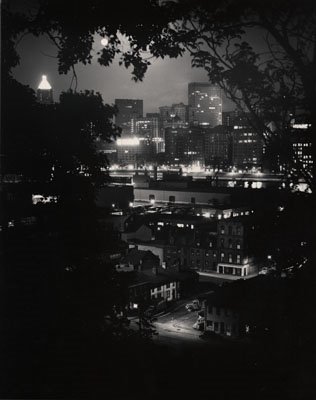Monday, November 16, 2009
Follow Up: What I'm Reading
Hey, Casey, Robin, and friends!
Thanks so much for your questions and comments! Sorry for the delay! And thanks so much for the book suggestions! I am trying to track down copies of all three at my library.
What I mean is that because men do not have reproductive rights (ie. they are not at liberty to walk away from pregnancies they do not want via abortion or adoption like women and they not entitled to pregnancies they *do* want if their female counterparts want to go through with an abortion). Feminist often toss it up to the fact that men and women are not equally situated biologically to value women's reproductive rights above men's and I think that's ironic to say the least and in a progressive modern society we ought to move beyond biological claims as a basis for human rights. I do NOT believe in compulsory pregnancy, but I do think there's something to the notion that men should *not* be forced into fatherhood in the same way that women should not be forced into motherhood. I am just looking at one branch on the tree of men's rights activism in America. But it's true that the family law system undermines fatherhood consistently. It should be the default set up when two people divorce that the mother and father get 50/50 child custody, but it's not. In 9 out of 10 cases women are awarded primary custody. And it's true that they are usually the primary caretakers in the family, but my feeling is that we need to stop overvaluing motherhood and undervaluing fatherhood if we want men to feel more invested in parenthood -- the crux of gender inequality in America, "on a cellular level" (to steal from a New Yorker article I just read by Ariel Levy) is the division of labor in the family. Rights and responsibilities go hand in hand so I think its in our interest to give men more custody and reproductive rights or at least reframe the conversation so that their place in it is more central.
Anyways, thanks for your thoughts on all of this and your suggestions!
Sunday, November 15, 2009
Sonnet LXXIII:That Time of Year thou mayst in me Behold
That time of year thou mayst in me behold
Comment: A wonderful "autumn" sonnet I found on the Poetry Foundation's website. Autumn is so funny in Texas. It reminds me very little of autumn back east. The leaves change and the temperature finally relents a little bit, but it lacks the chill and crisp cool air of East Coast autumns. It's actually still warm and even a little bit humid here. I miss the crispness of falls back East, and of course, the color of the fall foliage.
I'm reading a recent biography of William Shakespeare called "Will in the World". Has anyone else read it? I'm really enjoying it. I'm learning all sorts of things about Shakespeare and Elizabethan England I should have learned ages ago. One fact that keeps popping up in my head is that paper was so expensive and scarce in England at the time, Shakespeare would not have been able to write his poems on paper as a boy. Can you imagine? The most gifted and brilliant writer of all time could not just jot a quickie down in a notepad when he was 14. And K and I use sheets and sheets of paper to stamp our hands on!!! It's really so wrong when you think about it. I have journals and journals of me whining about getting a bad grade or liking a boy and Shakespeare had to keep it all stored in his magnificent cranium.
Tuesday, November 10, 2009
Whitman Six Feet Under
Hi Everyone,
My husband Matt and I recently started watching "Six Feet Under" on DVD (yes, we're a bit late to the party) and last night's episode featured a funeral for a woman who died alone, with no one to mourn her. She requested that the following lines from Walt Whitman's "Song of Myself" be read at her funeral service, and as the characters (and the audience) all together pondered that big question, What Happens When We Die?, these lines struck me as both beautiful and hopeful. My favorite line is the last. Here is the excerpt:
Walt Whitman "Song of Myself" lines 115-122:
What do you think has become of the young and old men?
And what do you think has become of the women and children?
They are alive and well somewhere,
The smallest sprout shows there is really no death,
And if ever there was it led forward life, and does not wait at the end to arrest it,
And ceas'd the moment life appear'd.
All goes onward and outward, nothing collapses,
And to die is different from what anyone supposed...and luckier.
Sunday, November 8, 2009
What I'm Reading
Hi Hesperus and friends!
I'm writing a piece on men's reproductive rights (or lack thereof) and how it's in the interest of feminism to grant men more reproductive rights. I'm researching the broader men's/fathers' rights movements and texts, such as Alec Baldwin's recent, A Promise to Ourselves and Jocelyn Elise Crowley's Defiant Dads: Fathers' Rights Activists in America, which have shed light on the multiple ways our family law system undermines fatherhood.
I believe that if men know their vote in the all-female government of reproduction doesn’t count for much, their stake in pregnancy (and consequently, parenthood) won’t be as high. This, in the end, hurts far more than it helps women. After all, who shoulders the heavier parental burdens? The pumped up demands on motherhood result, in part, from the short shrift given to men in the nine month preceding childbirth. In procreation (and child-rearing) fatherhood is regarded as mere accessory to the grand gown of motherhood.
Any thoughts on this? Any examples of the ways in which fathers are undermined in our culture?
I'd love to hear some of your thoughts!
Thanks so much for this forum, Casey, for discussing things!
Thursday, November 5, 2009
Update--What I'm reading
I am reading Portnoy's Complaint at the moment, a pick which was inspired by a comment on your blog a while back about your favorite books. I've always been curious about it ever since so I got it from the library last week. Lewd and hysterical -- I'm enjoying it. Lots of angst and agita. Prior to Portnoy, I just finished The Reader (troubling and beautiful) and also When We Were Orphans by Kazuo Ishiguro (which I enjoyed but not as much as Remains of the Day or Never Let Me Go).
Tuesday, November 3, 2009
Alley Cat Love Song

by Dana Gioia
Come into the garden, Fred,
For the neighborhood tabby is gone.
Come into the garden, Fred.
I have nothing but my flea collar on,
And the scent of catnip has gone to my head.
I'll wait by the screen door till dawn.
The fireflies court in the sweetgum tree.
The nightjar calls from the pine,
And she seems to say in her rhapsody,
"Oh, mustard-brown Fred, be mine!"
The full moon lights my whiskers afire,
And the fur goes erect on my spine.
I hear the frogs in the muddy lake
Croaking from shore to shore.
They've one swift season to soothe their ache.
In autumn they sing no more.
So ignore me now, and you'll hear my meow
As I scratch all night at the door.
Graywolf Press, St. Paul, MN
Comment: I love this poem. Charming in an effortless way. It made me smile. I found it in Poetry 180: A Turning Back to Poetry. You can find all the poems on the Library of Congress's website.

